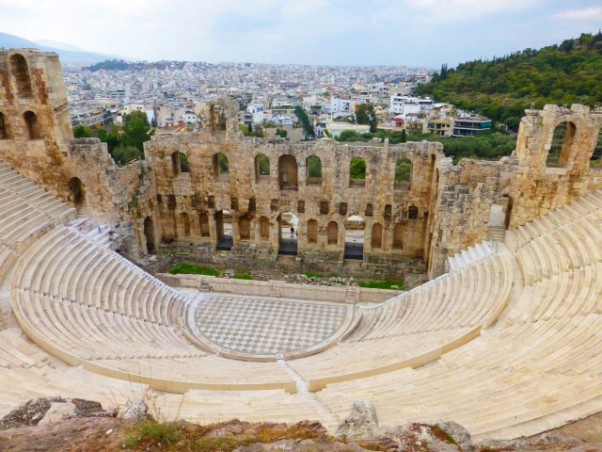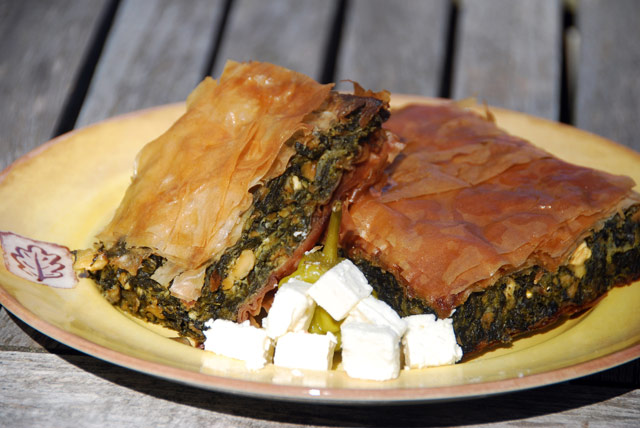History
Greece, officially the Hellenic Republic and known since ancient times as Hellas, is a country in Southern Europe. According to the 2011 census, Greece’s population is around 11 million. Athens is the nation’s capital and largest city.
Greece is strategically located at the crossroads of Europe, Asia and Africa. It also shares land borders with Albania to the northwest, the Republic of Macedonia and Bulgaria to the north and Turkey to the northeast. The country consists of nine geographic regions: Macedonia, Central Greece, the Peloponnese, Thessaly, Epirus, the Aegean Islands (including the Dodecanese and Cyclades), Thrace, Crete, and the Ionian Islands. The Aegean Sea lies to the east of the mainland, the Ionian Sea to the west, and the Mediterranean Sea to the south. Greece has the longest coastline on the Mediterranean Basin and the 11th longest coastline in the world at 13,676 km (8,498 mi) in length, featuring a vast number of islands (approximately 1,400, of which 227 are inhabited). Eighty percent of Greece consists of mountains, of which Mount Olympus is the highest, at 2,917 m (9,570 ft).
Modern Greece traces its roots to the civilization of Ancient Greece, which began with the Aegean Civilizations of the Bronze Age. Considered the cradle of all Western civilization, Greece is the birthplace of democracy, Western philosophy, the Olympic Games, Western literature and historiography, political science, major scientific and mathematical principles and Western drama including both tragedy and comedy. The cultural and technological achievements of Greece greatly influenced the world, with many aspects of Greek civilization being imparted to the East through Alexander the Great’s campaigns, and to the West through its incorporation into the Roman Empire. This rich legacy is partly reflected by the 17 UNESCO World Heritage Sites located in Greece, ranking it 6th in Europe and 13th in the world. The modern Greek state, which comprises most of the historical core of Greek civilization, was established in 1830 following the war of independence from the Ottoman Empire.
 Greece is a democratic and developed country with an advanced high-income economy, a high quality of life and a very high standard of living. A founding member of the United Nations, Greece was the 10th member to join the European Communities (precursor to the EU) and has been part of the Eurozone since 2001. The nation is also a member of numerous other international institutions including the Council of Europe, NATO, OECD, OSCE and the WTO. Greece has the largest economy in the Balkan Peninsula where Greece is an important regional investor. Its economy is the ninth largest in the Eurozone and the 43rd in the world.
Greece is a democratic and developed country with an advanced high-income economy, a high quality of life and a very high standard of living. A founding member of the United Nations, Greece was the 10th member to join the European Communities (precursor to the EU) and has been part of the Eurozone since 2001. The nation is also a member of numerous other international institutions including the Council of Europe, NATO, OECD, OSCE and the WTO. Greece has the largest economy in the Balkan Peninsula where Greece is an important regional investor. Its economy is the ninth largest in the Eurozone and the 43rd in the world.
Greek Cuisine
 Greek cuisine is a Mediterranean cuisine. Contemporary Greek cookery makes wide use of olive oil, vegetables and herbs, grains and bread, wine, fish, and various meats, including lamb, poultry, rabbit and pork. Also important are olives, cheese, eggplant (aubergine), zucchini (courgette), and yogurt. Greek desserts are characterized by the dominant use of nuts and honey. Some dishes use filo pastry.
Greek cuisine is a Mediterranean cuisine. Contemporary Greek cookery makes wide use of olive oil, vegetables and herbs, grains and bread, wine, fish, and various meats, including lamb, poultry, rabbit and pork. Also important are olives, cheese, eggplant (aubergine), zucchini (courgette), and yogurt. Greek desserts are characterized by the dominant use of nuts and honey. Some dishes use filo pastry.
Mezés (μεζές) is a collective name for a variety of small dishes, typically served with wines or anise-flavored liqueurs as ouzo or homemade tsipouro. Orektika is the formal name for appetizers and is often used as a reference to eating the first course of a cuisine other than Greek cuisine. Dips are served with bread loaf or pita bread. In some regions, dried bread (paximadhi) is softened in water.
The most characteristic and ancient element of Greek cuisine is olive oil, which is used in most dishes. It is produced from the olive trees prominent throughout the region and adds to the distinctive taste of Greek food. The basic grain in Greece is wheat, though barley is also grown. Important vegetables include tomato, aubergine (eggplant), potato, green beans, okra, green peppers, and onions. Honey in Greece is mainly honey from the nectar of fruit trees and citrus trees: lemon, orange, bigarade (bitter orange) trees, thyme honey, and pine honey. Mastic (aromatic, ivory colored resin) is grown on the Aegean island of Chios.
Greek cuisine uses some flavorings more often than other Mediterranean cuisines do, namely: oregano, mint, garlic, onion, dill and bay laurel leaves. Other common herbs and spices include basil, thyme and fennel seed. Persillade is also used as a garnish on some dishes. Many Greek recipes, especially in the northern parts of the country, use “sweet” spices in combination with meat, for example, cinnamon and cloves in stews.
The climate and terrain have tended to favor the breeding of goats and sheep over cattle, and thus beef dishes are uncommon. Fish dishes are common in coastal regions and on the islands. A great variety of cheese types are used in Greek cuisine, including Feta, Kasseri, Kefalotyri, Graviera, Anthotyros, Manouri, Metsovone and Mizithra.
Too much refinement is generally considered to be against the hearty spirit of the Greek cuisine, though recent trends among Greek culinary circles tend to favor a somewhat more refined approach.
Dining out is common in Greece, and has been for quite some time. The Taverna and Estiatorio are widespread, serving home cooking at affordable prices to both locals and tourists. Recently, fast food has become more widespread, with local chains such as Goody’s springing up, though most McDonald’s have closed. Locals still largely eat on Greek cuisine.[according to whom?] In addition, some traditional Greek foods, especially souvlaki, gyros, pita such as tyropita and spanakopita (respectively, cheese and spinach pie) are often served in fast food style.

